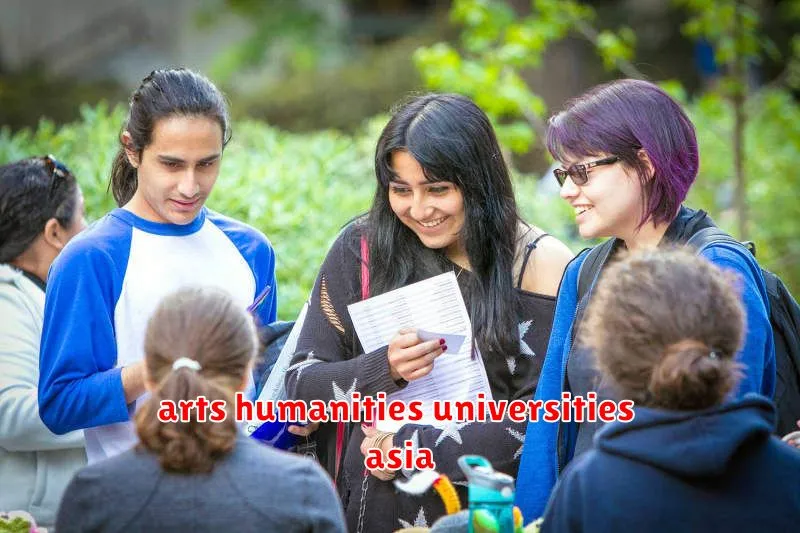Are you passionate about the arts and humanities and looking to pursue your studies at a top-notch Asian university? Look no further! This list highlights the Top 10 Asian Universities for Arts and Humanities, renowned for their exceptional academic programs, world-class faculty, and vibrant learning environments. Whether you are interested in literature, history, philosophy, music, visual arts, or any other field within the arts and humanities, these universities offer unparalleled opportunities to explore your interests, develop your skills, and make a lasting impact. Join us as we delve into the esteemed institutions that shape the future of the arts and humanities in Asia.
University of Tokyo
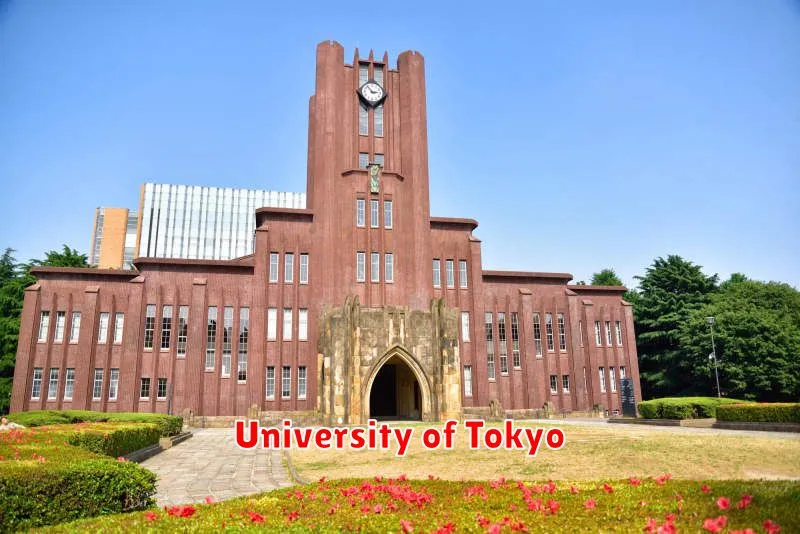
The University of Tokyo, also known as Todai, is a prestigious public research university located in Tokyo, Japan. It is consistently ranked among the top universities in the world and is renowned for its academic excellence, cutting-edge research, and distinguished alumni.
History and Reputation
Founded in 1877 as the Imperial University, Todai has a rich history and a long tradition of academic excellence. It played a pivotal role in the development of modern Japan, producing numerous scholars, scientists, and leaders who have shaped the nation’s intellectual and economic landscape.
Today, the University of Tokyo is widely regarded as one of the most prestigious academic institutions in Asia and globally. It consistently ranks among the top universities in major international rankings, such as the QS World University Rankings and the Times Higher Education World University Rankings.
Academic Programs
The University of Tokyo offers a wide range of undergraduate and graduate programs across diverse disciplines, including:
- Arts and Humanities
- Social Sciences
- Law
- Economics
- Science and Engineering
- Medicine
Its academic programs are highly competitive and attract students from all over the world. The university is known for its rigorous academic standards, distinguished faculty, and state-of-the-art research facilities.
Research and Innovation
The University of Tokyo is a leading research institution, with a strong focus on innovation and discovery. Its researchers have made significant contributions in various fields, including:
- Physics
- Chemistry
- Medicine
- Engineering
- Computer Science
The university is home to numerous research centers and institutes, including the Institute for Advanced Studies and the Tokyo Medical and Dental University. Its researchers have been awarded Nobel Prizes and other prestigious awards for their groundbreaking work.
Campus Life
The University of Tokyo’s main campus is located in the heart of Tokyo, near the Imperial Palace. The campus is a vibrant and bustling hub of academic activity, with a rich cultural life and numerous student organizations.
Students enjoy access to a wide range of facilities, including libraries, museums, sports facilities, and student housing. The university also offers a variety of extracurricular activities, including sports, clubs, and cultural events.
The University of Tokyo is a world-renowned institution that embodies academic excellence, research innovation, and a vibrant campus community. Its distinguished faculty, rigorous academic programs, and commitment to discovery continue to attract talented students and researchers from around the globe.
National University of Singapore
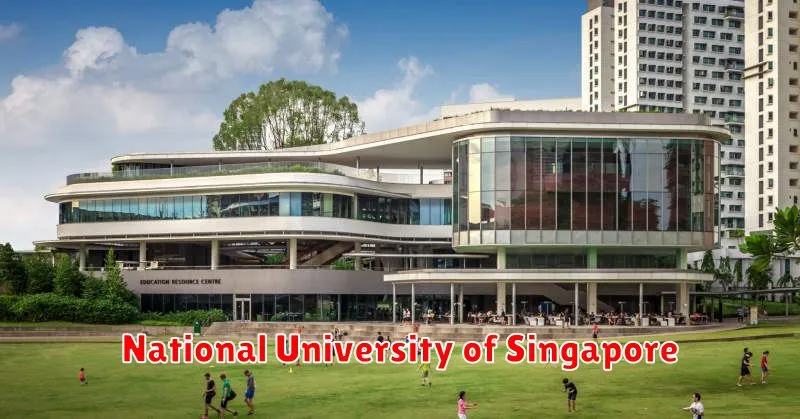
The National University of Singapore (NUS) is a public research university located in Singapore. It was established in 1905 as the Straits Settlements and Federated Malay States Government College, and it became the University of Malaya in 1949. In 1980, the University of Malaya was split into two separate universities, with the University of Malaya remaining in Kuala Lumpur and the National University of Singapore being established in Singapore.
NUS is consistently ranked among the top universities in the world. In the 2023 QS World University Rankings, NUS was ranked 11th in the world. It is also ranked highly in other international rankings, such as the Times Higher Education World University Rankings and the Academic Ranking of World Universities.
NUS has a large and diverse student body, with students from over 100 countries. It offers a wide range of undergraduate and postgraduate programs in various disciplines, including engineering, science, medicine, law, arts, and social sciences. The university is also home to a number of world-renowned research institutes and centers, such as the Institute for Health Innovation & Technology and the Lee Kuan Yew School of Public Policy.
NUS is committed to providing its students with a world-class education and a stimulating learning environment. The university has a strong emphasis on research and innovation, and its faculty are leaders in their fields. NUS graduates are highly sought after by employers around the world.
If you are looking for a world-class education, NUS is a great option. The university offers a wide range of programs, a stimulating learning environment, and a strong focus on research and innovation. NUS is a truly global university, and its graduates are prepared to make a positive impact on the world.
Peking University
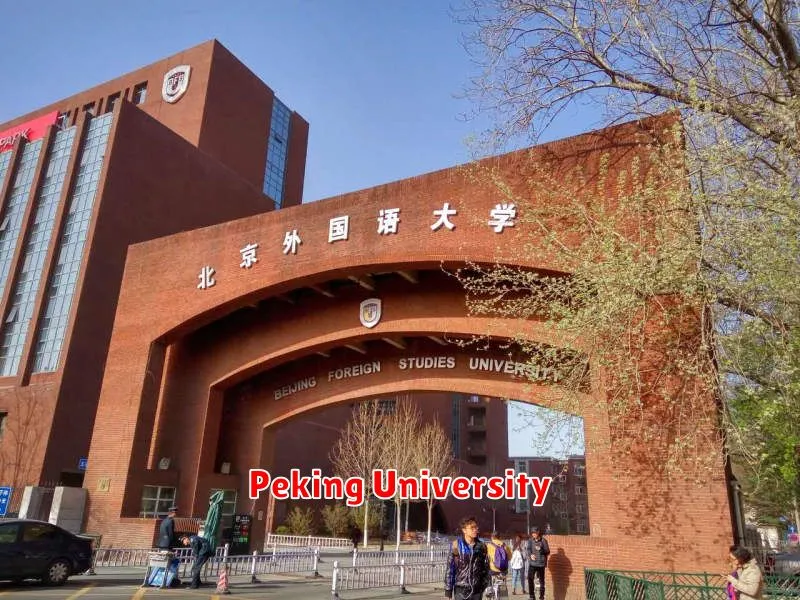
Peking University, often abbreviated as PKU, is a leading comprehensive research university located in Beijing, China. Founded in 1898, it is one of the oldest and most prestigious universities in China. PKU is consistently ranked among the top universities in Asia and the world, known for its academic excellence, distinguished faculty, and vibrant campus culture.
History and Legacy
PKU has a rich history deeply intertwined with the development of modern China. It was initially established as the Imperial University of Peking, envisioned as a center for learning and intellectual advancement during the late Qing dynasty. After the Xinhai Revolution, it became the National Peking University, marking a transition to a modern, national university.
Throughout the 20th century, PKU played a pivotal role in shaping Chinese society and intellectual discourse. It fostered renowned scholars and thinkers, witnessed political and social upheavals, and endured periods of both growth and challenges. Its historical significance is reflected in its iconic campus architecture, which blends traditional Chinese elements with modern influences.
Academic Excellence
PKU is renowned for its academic excellence across a wide range of disciplines. It offers undergraduate and graduate programs in fields such as humanities, social sciences, natural sciences, engineering, medicine, and law. Its faculty comprises highly respected scholars and researchers who are actively engaged in cutting-edge research and intellectual pursuits.
The university boasts a world-class library system, state-of-the-art research facilities, and a vibrant intellectual environment that encourages academic inquiry, innovation, and critical thinking. PKU has consistently ranked among the top universities in global rankings, reflecting its commitment to academic rigor and intellectual excellence.
Campus Culture
PKU is known for its vibrant campus culture, where academic excellence is combined with a strong sense of community and intellectual engagement. The university hosts numerous student clubs, societies, and organizations that cater to a wide range of interests. From sports and arts to academic debates and social initiatives, students have ample opportunities to explore their passions and contribute to campus life.
PKU is also home to a diverse student body, attracting students from across China and around the world. This cultural richness fosters a dynamic and inclusive environment, where students can engage with diverse perspectives and learn from each other’s experiences.
Global Impact
Beyond its domestic influence, PKU has made significant contributions to the global academic community. It has forged collaborations with top universities worldwide, fostering international research projects, student exchange programs, and intellectual dialogues. The university’s alumni network spans the globe, making a lasting impact in various fields.
As a leading research university, PKU continues to play a vital role in addressing global challenges and contributing to knowledge creation and dissemination. Its dedication to academic excellence, cultural diversity, and international engagement positions it as a prominent player on the world stage.
Seoul National University
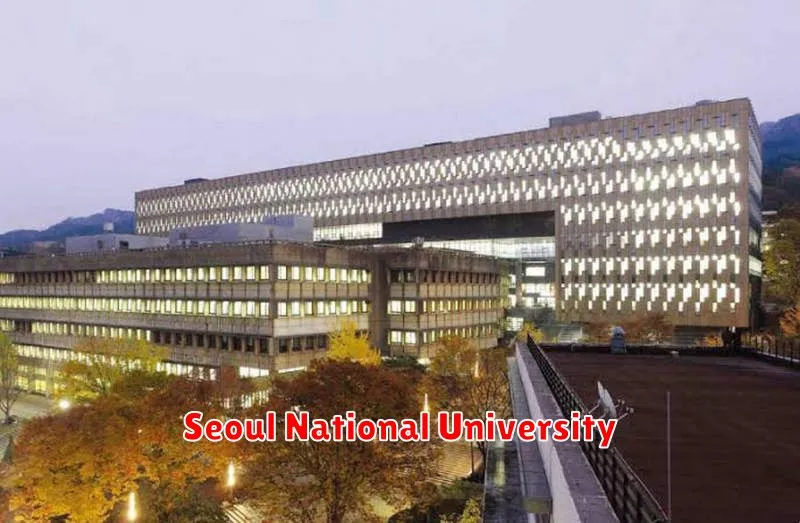
Seoul National University (SNU) is a public research university located in Seoul, South Korea. It is widely considered to be the most prestigious university in South Korea and consistently ranks among the top universities in Asia. SNU is a comprehensive university with a wide range of academic disciplines, including the humanities, social sciences, natural sciences, engineering, medicine, and law.
The university was founded in 1946, shortly after the end of World War II, and its roots can be traced back to the establishment of the Imperial Japanese Government-General of Korea in 1910. SNU has played a significant role in the development of South Korea’s higher education system and has produced numerous prominent figures in academia, business, politics, and culture.
SNU is known for its excellent faculty, world-class research facilities, and strong academic reputation. The university has a large and diverse student body, with students from all over the world. SNU also boasts a beautiful and spacious campus located in the heart of Seoul, close to many cultural and historical attractions.
Academics
SNU is organized into 16 colleges, including:
- College of Humanities
- College of Social Sciences
- College of Natural Sciences
- College of Engineering
- College of Medicine
- College of Law
- College of Agriculture and Life Sciences
- College of Pharmacy
- College of Dentistry
- College of Veterinary Medicine
- College of Education
- College of Music
- College of Fine Arts
- College of Nursing
- College of Economics
- College of Business Administration
These colleges offer a wide range of undergraduate and graduate programs, including doctoral programs in many fields. SNU is also home to numerous research institutes and centers, which conduct cutting-edge research in a variety of areas.
Campus Life
SNU has a vibrant and active campus life. The university offers a wide range of student organizations and clubs, as well as numerous cultural and sporting events. The campus is also home to several museums, art galleries, and theaters.
SNU is located in a beautiful and convenient location in Seoul. The university is close to many cultural and historical attractions, as well as public transportation options. SNU also provides a wide range of student services, including housing, dining, and healthcare.
Admissions
Admission to SNU is highly competitive, and the university has a rigorous admissions process. Applicants are evaluated based on their academic record, standardized test scores, extracurricular activities, and personal statements.
For international students, SNU offers a variety of scholarships and financial aid opportunities. The university also provides support services to help international students adjust to life in South Korea.
Seoul National University is one of the leading universities in Asia and a highly respected institution of higher learning. SNU offers a world-class education, a vibrant campus life, and a beautiful and convenient location in Seoul. If you are interested in studying at one of the best universities in the world, SNU is a great option.
University of Hong Kong
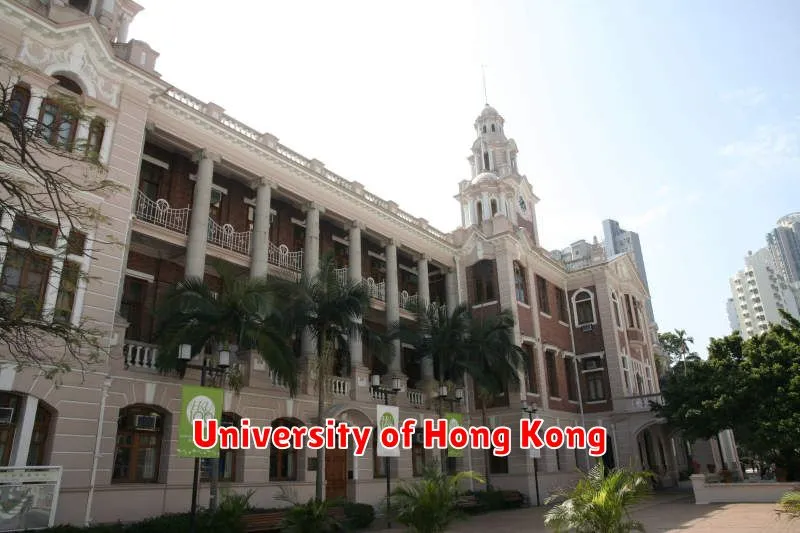
The University of Hong Kong (HKU) is a public research university located in Pok Fu Lam, Hong Kong. Founded in 1911, it is the oldest and one of the most prestigious universities in Hong Kong. HKU is consistently ranked among the top universities in Asia and the world, and is known for its strong academic programs, world-class research, and vibrant campus life.
Academics
HKU offers a wide range of undergraduate and postgraduate programs across 10 faculties:
- Arts
- Business and Economics
- Dentistry
- Education
- Engineering
- Law
- Medicine
- Science
- Social Sciences
- Architecture
The university is renowned for its strengths in medicine, law, business, and engineering, and its research has made significant contributions to various fields. HKU also has a strong emphasis on interdisciplinary studies and promotes collaboration across faculties.
Campus Life
The HKU campus is located in Pok Fu Lam, a scenic area on the western side of Hong Kong Island. The campus is home to a diverse community of students and faculty from around the world. Students have access to a wide range of facilities and services, including libraries, sports facilities, student clubs, and dining options.
HKU is known for its vibrant campus life and its strong student culture. There are numerous student clubs and organizations that cater to a wide range of interests, from sports and music to academics and social justice. The university also hosts a variety of cultural events throughout the year.
Reputation and Rankings
HKU is consistently ranked among the top universities in Asia and the world. In the 2023 QS World University Rankings, HKU ranked 22nd in the world and 1st in Hong Kong. The university is also highly regarded for its research output and its impact on the global community.
Kyoto University
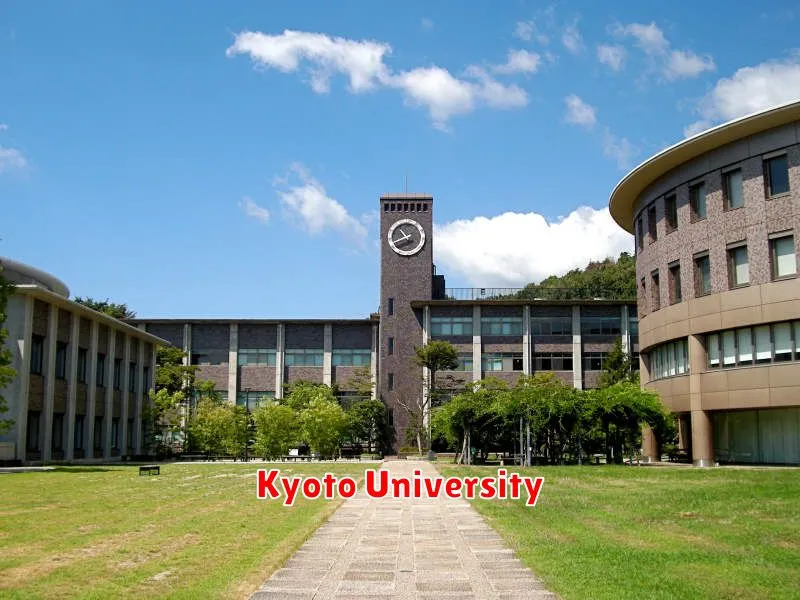
Kyoto University is a prestigious public research university located in Kyoto, Japan. Founded in 1897, it is one of the oldest and most highly ranked universities in the country. Kyoto University is renowned for its academic excellence, research contributions, and innovative spirit.
Academics
Kyoto University offers a wide range of undergraduate and graduate programs across ten faculties and eighteen graduate schools. The university is particularly known for its strengths in science, engineering, medicine, humanities, and social sciences. Its faculty includes some of the world’s leading researchers and scholars, who are committed to pushing the boundaries of knowledge.
Research
Kyoto University is a major center for research and innovation. The university has a strong tradition of producing groundbreaking discoveries and technological advancements. Its researchers have made significant contributions to fields such as physics, chemistry, biology, medicine, and environmental science.
Campus Life
Kyoto University’s beautiful campus is located in the heart of Kyoto, a city known for its rich history, culture, and tradition. Students have the opportunity to experience the best of both worlds – a vibrant campus community and access to the unique cultural attractions of Kyoto.
Notable Alumni
Kyoto University has produced a number of notable alumni, including Nobel laureates, political leaders, and prominent figures in various fields. Some of its most famous alumni include:
- Hideki Yukawa (Nobel Prize in Physics, 1949)
- Shin’ichirō Tomonaga (Nobel Prize in Physics, 1965)
- Toshihide Maskawa (Nobel Prize in Physics, 2008)
- Ei-ichi Negishi (Nobel Prize in Chemistry, 2010)
- Satoshi Ōmura (Nobel Prize in Physiology or Medicine, 2015)
Kyoto University is a highly competitive institution, attracting students from all over Japan and the world. It continues to be a leading center for academic excellence and research, contributing to the advancement of knowledge and innovation.
Chinese University of Hong Kong
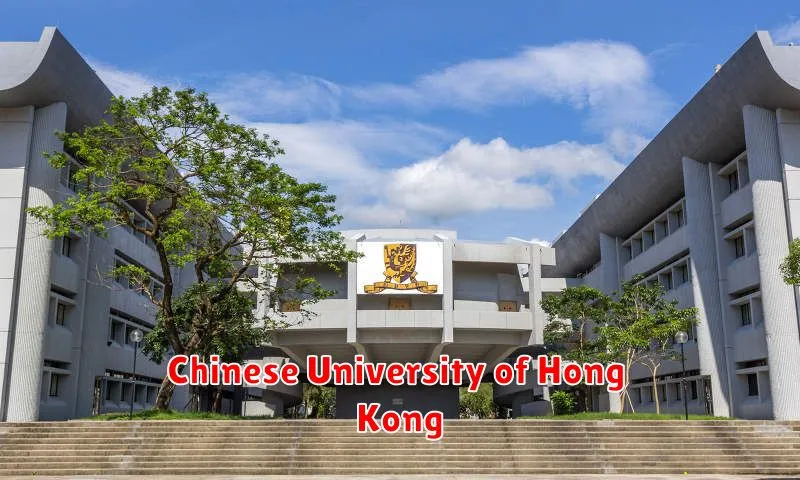
The Chinese University of Hong Kong (CUHK) is a public research university located in Shatin, New Territories, Hong Kong. Founded in 1963, it is one of the most prestigious universities in Hong Kong and Asia, consistently ranked among the top universities in the world.
Academics
CUHK offers a wide range of undergraduate and postgraduate programs across eight faculties:
- Arts
- Business Administration
- Education
- Engineering
- Law
- Medicine
- Science
- Social Science
The university is renowned for its strong research programs, particularly in the fields of medicine, engineering, and social sciences. It boasts world-class research facilities and a distinguished faculty, attracting top scholars and researchers from around the globe.
Campus Life
CUHK’s beautiful campus is spread across a sprawling 137-hectare site, offering stunning views of the surrounding mountains and Tolo Harbour. The campus features a vibrant student community, with numerous student societies, clubs, and activities.
Students can enjoy a wide range of recreational facilities, including a swimming pool, sports fields, a gymnasium, and a student center. The university also has a strong emphasis on student welfare, providing comprehensive support services to help students succeed academically and personally.
Notable Alumni
CUHK has produced numerous notable alumni who have made significant contributions to various fields. Some of its most distinguished graduates include:
- Carrie Lam, Chief Executive of Hong Kong
- Tung Chee-hwa, former Chief Executive of Hong Kong
- David Chow, Hong Kong billionaire and entrepreneur
- Victor Fung, Hong Kong businessman and philanthropist
The university’s strong reputation, excellent academics, and vibrant campus life continue to attract students from around the world, making it a leading institution of higher education in Asia.
University of the Philippines
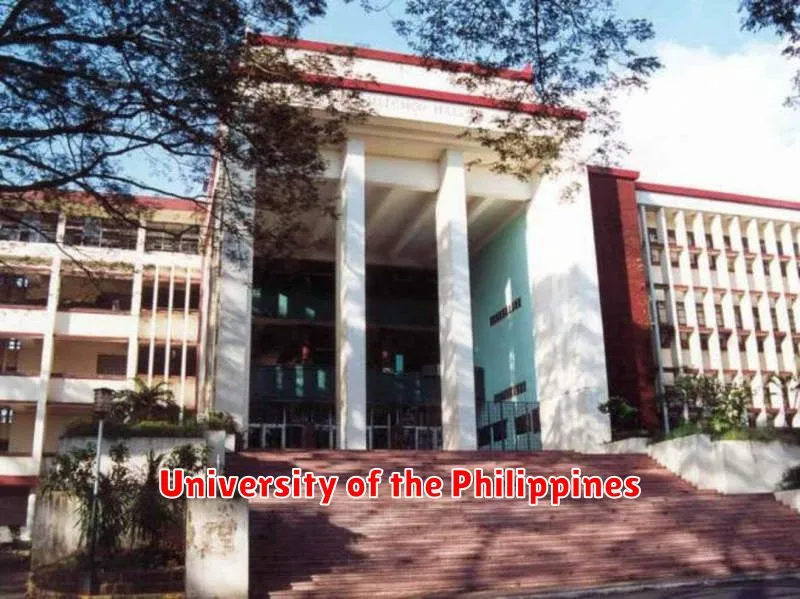
The University of the Philippines (UP) is a public university system in the Philippines. It is the country’s national university and is considered to be one of the top universities in Southeast Asia. UP has a rich history and tradition of excellence in education, research, and public service.
UP was established in 1908 as the University of the Philippines, and it was the first public university in the Philippines. It was founded by the American colonial government, and it was modeled after the University of California, Berkeley. UP was initially located in Manila, but it has since expanded to other locations throughout the Philippines, including Quezon City, Los Baños, Diliman, Baguio City, and Iloilo City.
UP is known for its strong academic programs, its highly qualified faculty, and its commitment to research and innovation. The university has produced many notable alumni, including presidents, politicians, scientists, artists, and writers. UP has also been a major contributor to the development of the Philippines, through its research and extension programs.
UP is divided into eight campuses, each with its own unique strengths and specializations. The University of the Philippines Diliman is the main campus of the university, and it is home to the majority of the university’s academic programs. The University of the Philippines Los Baños is known for its agriculture and forestry programs, while the University of the Philippines Manila is known for its medical and allied health programs.
UP is a highly selective university, and it is known for its rigorous academic standards. The university has a strong emphasis on critical thinking, problem-solving, and leadership development. UP is committed to providing its students with a well-rounded education, and it offers a wide range of extracurricular activities, including sports, clubs, and organizations.
UP is an important institution in the Philippines, and it plays a vital role in the country’s development. The university is a symbol of excellence, innovation, and public service, and it is a source of pride for Filipinos.
National Taiwan University
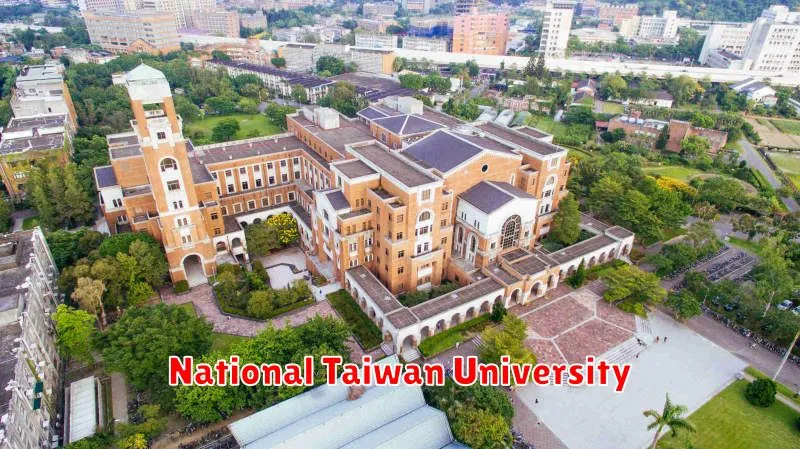
National Taiwan University (NTU), also known as Taiwan University, is a public research university located in Taipei, Taiwan. It is one of the most prestigious universities in Taiwan and the Asia-Pacific region, consistently ranked among the top universities in the world.
History
NTU was founded in 1895 as the Imperial University of Taiwan by the Japanese colonial government. After World War II, it was renamed National Taiwan University and became the flagship university of Taiwan.
Academics
NTU offers a wide range of undergraduate and graduate programs in various disciplines, including the humanities, social sciences, sciences, engineering, medicine, and law. The university is renowned for its academic excellence, with many of its faculties and departments ranked among the best in the world.
Research
NTU is a leading research institution in Taiwan, with a strong emphasis on interdisciplinary research. The university has a number of research centers and institutes that focus on areas such as nanotechnology, biotechnology, and sustainable development.
Campus
The NTU campus is located in the Da’an District of Taipei, near the National Palace Museum and the Taipei Botanical Garden. The campus is known for its beautiful green spaces and its mix of traditional and modern architecture.
Alumni
NTU has a distinguished alumni network, including many prominent figures in government, business, academia, and the arts. Notable alumni include former President Lee Teng-hui, Nobel laureate Lee Yuan-Tseh, and renowned architect C.Y. Lee.
International Recognition
NTU has consistently ranked among the top universities in the world in various international rankings, including the Times Higher Education World University Rankings, the QS World University Rankings, and the Academic Ranking of World Universities (ARWU). The university has also been recognized for its research and innovation, and it has strong partnerships with leading universities and institutions around the world.
National Taiwan University is a leading research university with a rich history and a strong commitment to academic excellence. The university is a valuable asset to Taiwan and the Asia-Pacific region, and it continues to make significant contributions to the world of education and research.
Keio University
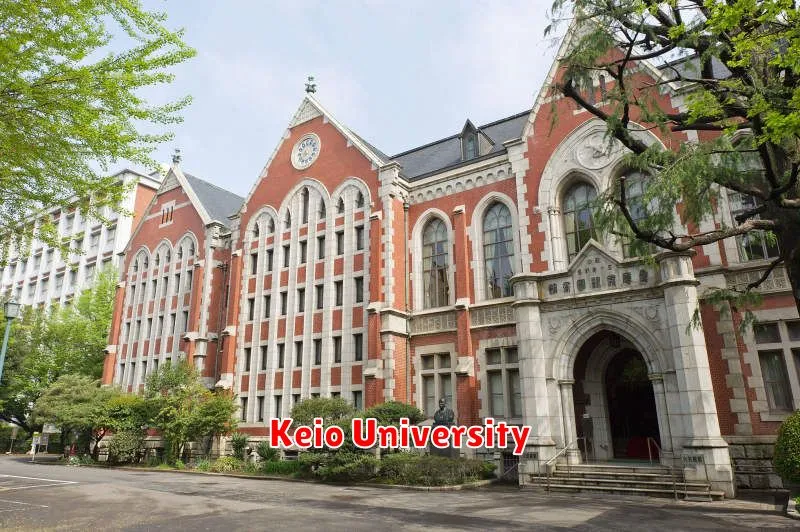
Keio University is a private research university located in Tokyo, Japan. It is one of the most prestigious universities in Japan and is known for its strong academic programs in a variety of fields, including law, medicine, business, and engineering. Founded in 1858 by Yukichi Fukuzawa, Keio is considered one of the first modern universities in Japan and has played a significant role in the country’s modernization.
Keio University is comprised of 10 undergraduate faculties and 18 graduate schools. It offers a wide range of undergraduate and graduate programs in the humanities, social sciences, natural sciences, engineering, medicine, law, and business. Some of the university’s notable alumni include former Prime Minister Yukio Hatoyama, former Japanese Emperor Akihito, and actor Ken Watanabe.
Academics
Keio University has a strong emphasis on research and scholarship. The university is home to a number of research centers and institutes, including the Keio Institute for Global Strategy, the Keio Institute for Medical Science, and the Keio Institute for Advanced Studies.
Campus Life
Keio University’s main campus is located in the Mita district of Minato, Tokyo. The campus is home to a variety of facilities, including libraries, museums, and athletic fields. The university also has a number of satellite campuses located throughout Japan.
Admissions
Admission to Keio University is highly competitive. The university has a rigorous application process, which includes entrance exams, interviews, and an assessment of the applicant’s academic record. The university also offers a number of scholarships to students with outstanding academic achievements.
Reputation
Keio University is consistently ranked among the top universities in Japan and Asia. The university is known for its academic excellence, research capabilities, and strong alumni network. Keio graduates are highly sought after by employers in Japan and around the world.
Keio University is a world-renowned institution of higher learning that has made significant contributions to Japanese society and the global academic community. With its strong academic programs, renowned faculty, and vibrant campus life, Keio continues to be a leading force in education and research.

